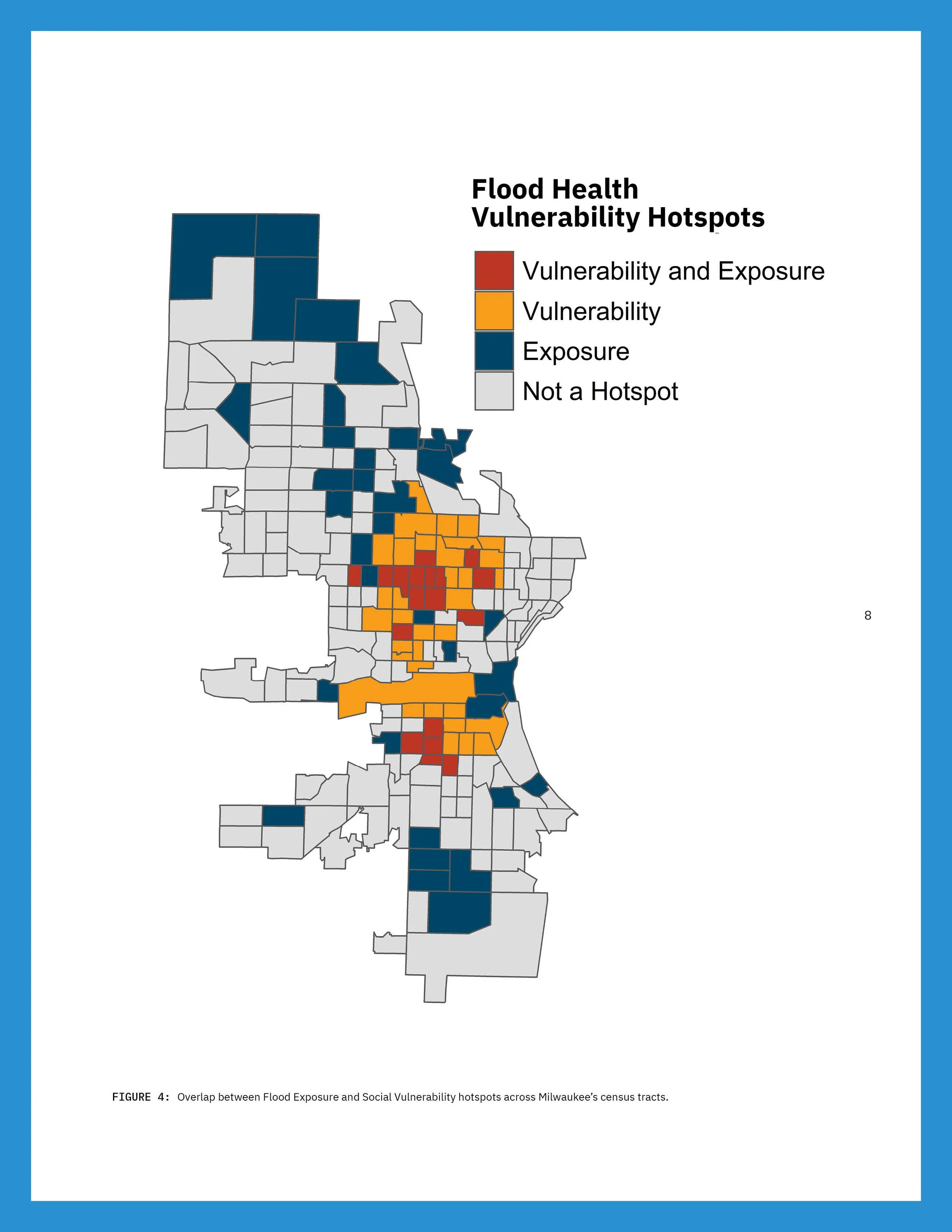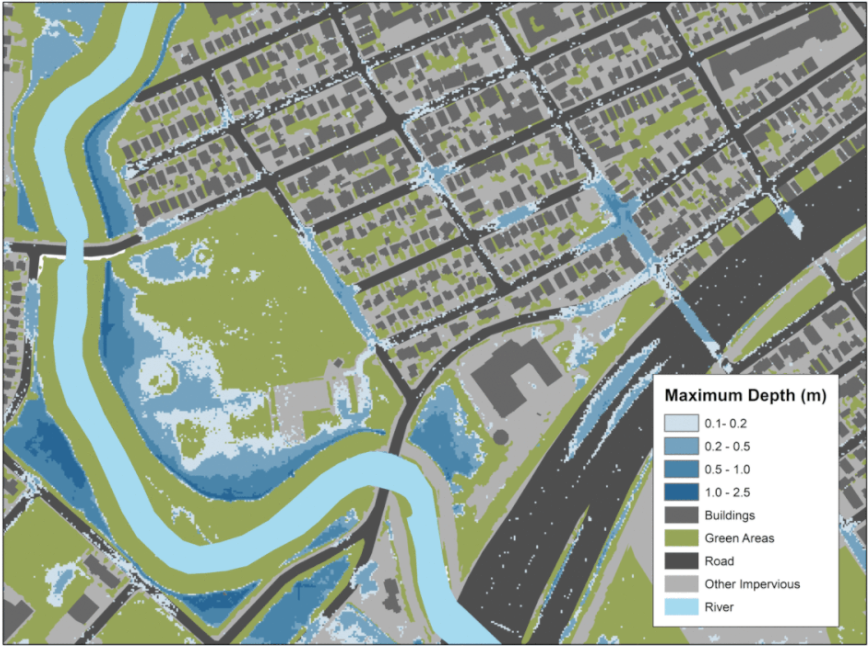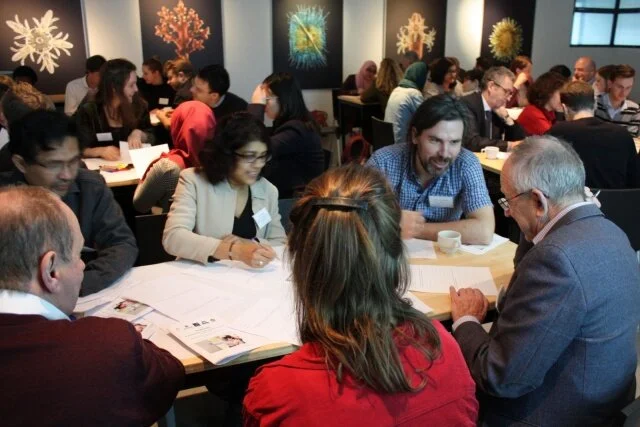The Milwaukee Flood and Health Vulnerability Assessment (FHVA) is a collaborative effort between Groundwork Milwaukee and The New School’s Urban Systems Lab to develop an assessment tool which identifies communities across Milwaukee where exposure to urban flooding and pre-existing health, housing and socioeconomic conditions intersect and create disproportionate vulnerabilities to the impacts caused by extreme flooding. The aim of the project is to provide critical information on both flood exposure and social vulnerability to support community-based advocacy and future planning to mitigate potential flood and health risks.
Project Team: Pablo Herreros, Elizabeth Cook, Timon McPhearson, Claudia Tomateo
The Environmental Justice of Urban Flood Risk and Green Infrastructure Solutions project aims to better understand the environmental justice impacts of climate change related flooding on minority and low-income communities and assess social equity in green infrastructure planning for reducing urban flood risks. Through data visualization and modeling future flood risk, the project will address two central questions concerning flood risk, and green infrastructure development: (1) Who is more exposed to flooding? And (2) who benefits most by current green infrastructure plans or developments?
Project themes
Attendees at the project launch discuss the challenges and opportunities in planning for climate change. Photo: C. Ballard
Project Team: Timon McPhearson, Rohan Bhargava
In September 2019, the Climate Change, Agriculture and Food Security (CCAFS) and International Fund for Agricultural Development (IFAD) organized a 5-day workshop and learning journey for IFAD staff and partners. The objective of the workshop and learning journey was to introduce attendees to transformational approaches to mainstreaming climate change, nutrition, gender, and youth. The fifth day of the event involved the analyzing and discussion of transformation agendas at the country and project levels under future socio-economic and climate scenarios. Junior Researcher Rohan Bhargava led the development of these scenarios and co-led the one-day workshop.
Project theme
Project Team: Timon McPhearson, Z Grabowski, Pauline Munga
Green infrastructure (GI) is usually assumed to be a benefit everywhere and for everybody in a city. Is this assumption correct? Or are there differences in where and who is served or burdened by GI? This project is a collaboration with the Cary Institute examining green infrastructure plans in 20 U.S. cities with the goal of understanding how best to improve the equity of green infrastructure through policy and practice. The project includes an interactive website and toolkit for city planners, researchers and others to use in considering the equity dimensions of future green infrastructure planning.
Project themes
Project Team: Erik Andersson, Timon McPhearson, Daniel Sauter
SMARTer Greener Cities aims to develop and test novel tools and processes for explicitly converging social, ecological, and technological approaches. The convergence of these approaches will promote resilient and equitable urban futures in Helsinki, Copenhagen, and Stockholm, and generate new opportunities for transformative change and increasing resilience to extreme events in other Nordic cities. The comprehensive integration of emerging science and practice connected to each of the three couplings (social-ecological (S-E), ecological-technological (E-T), and social-technological (S-T)) into a combined SETS framework is essential for the development of “smarter” (through systems) solutions for resilience and equity. We believe, despite the challenge of systems oriented research and practice, that we must cut across silos in disciplines, approaches, and knowledge systems by bringing technology, people, and nature together.
PROJECT THemes
Project Team: Timon McPhearson
The Seeds of Good Anthropocenes project is a collaboration with the Stockholm Resilience Centre funded initially through Future Earth. Our aim is to counterbalance dystopian visions of the future that may be inhibiting the ability to cooperate effectively on problem solving.
USL is working with project participants to solicit, explore, and develop a suite of alternative, plausible “good anthropocenes” — future scenarios that are socially and environmentally desirable, just, and sustainable.












